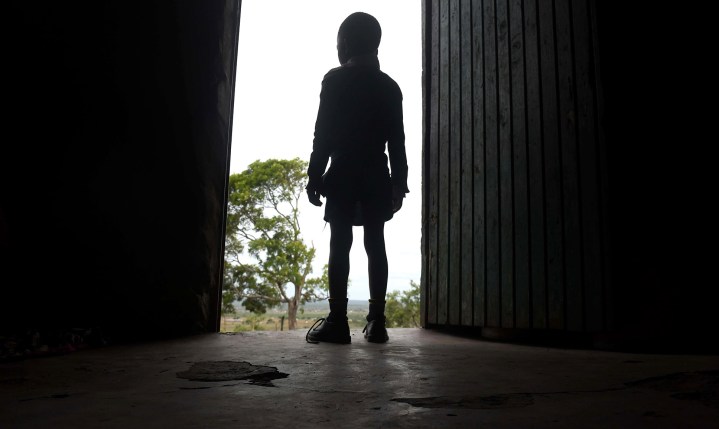THE CONVERSATION
Supporting a child with long Covid – tips from parents of children living with the condition

While every child will have specific problems and individual needs, there are some suggestions to help parents or guardians support their child or young person with long Covid.
Long Covid is the patient-preferred term used to describe symptoms lasting more than four weeks after a Covid-19 infection. Children and young people can also suffer from long Covid following even a mild infection with the virus. The latest figures from the UK’s Office for National Statistics show an estimated 69,000 children are living with long Covid, 41,000 of whom have had symptoms for at least a year.
The most common symptoms of long Covid in children are fatigue and headaches, but young people can also have a range of other symptoms including chest pain, persistent cough, dizziness, nausea, abdominal pain, anxiety and low mood.
We don’t know whether all children with long Covid will recover or how long this will take. Parents’ narratives suggest that symptoms may fluctuate over time, and that it’s not uncommon to have a period of apparent recovery and then relapse some months later. The course of the illness is not linear.
While every child will have specific problems and individual needs, there are some suggestions we can make to help parents or guardians support their child or young person with long Covid. Two of us (Binita and Tracy) have children with long Covid, and the following tips are based on our own experiences.
- Believe your child
Long Covid is an “invisible” illness, so children can look well. At the start of the illness we both sent our children to school when they said they weren’t feeling well enough, putting it down to them not wanting to go to school, or some sort of anxiety.
Looking back, this was the wrong thing to do. They got worse by “pushing through”. Our advice is to listen to your child, don’t push them and seek medical advice to ensure there’s no other underlying cause for their symptoms.
If your child is not being believed by a healthcare professional, there’s no harm in asking for a second opinion, or sharing available information with the professional. Long Covid is a well recognised condition in children but sadly, there’s still poor awareness among some medical professionals.
Visit Daily Maverick’s home page for more news, analysis and investigations
- Resting and pacing
Energy can be likened to money in the bank. If you keep spending without topping up, you soon get into debt. In long Covid, using up energy without planning rest can result in a “crash” or relapse. It can then take several days to accumulate enough energy to get going again.
Many don’t realise that even activities like watching TV and being on social media can drain energy for those with long Covid. Work with your children to consider how much energy different activities require (you might categorise activities into low, medium and high energy) and ensure that each activity is followed by rest, particularly those that expend more energy.
Activities may also need to be adjusted. For example, our children can no longer participate in sport, but do more drawing and craft, when energy levels allow.
- Seek support at school
Some children with long Covid may have cognitive impairment (also called “brain fog”), sensitivity to lights or sounds, and fatigue – all of which present barriers to learning at school.
Adaptations to learning may be needed. Breaking information down into smaller chunks, reduced lesson times and a quiet environment can help. Our advice is to speak to the school about having a care plan for your child and ensuring lessons are adapted appropriately.
Separately, Covid reinfection carries a risk of symptom relapse or deterioration for children with long Covid, which can cause anxiety for families when sending children to school.
We would advise that children with long Covid have a risk assessment at school to reduce the chance of reinfection. This can include looking at limiting the child’s exposure to larger groups (for example, in assembly or the canteen), ensuring classrooms are well ventilated, and allowing the use of a FFP2 mask if the child wishes to wear one.
- Mental health
Long Covid can be debilitating and isolating. Focusing on what children and young people have lost can drive despair, hopelessness and a feeling of being trapped.
We’ve tried to practise “acceptance” with our children. This involves accepting the situation we’re in and avoiding focusing on negative thoughts and feelings. We spend a lot of time emphasising what our children can still do, setting realistic goals, celebrating wins, and trying not to grieve too much over what has been lost.
It’s also important that parents and family members are kind to themselves and one another. Caring for a sick child is difficult for the whole family. If you need mental health support yourself, speak to a healthcare professional.
- Non-medical treatments
Medical therapies for treating long Covid are limited pending research trials, and access to specialist long Covid clinics for children and young people is difficult to come by.
There are, however, some things you can do at home that may help manage your child’s symptoms. Many people have an overactive “fight or flight” response after viral infections, including Covid-19, due to effects on their autonomic nervous system. This can impact heart rate and blood pressure, as well as gut and bladder function. Reducing screen time and caffeine (particularly in the evenings) and breathing exercises can help reduce fight or flight hormones. DM/MC
This story was first published in The Conversation.
Carolyn Chew-Graham is Professor of General Practice Research, Director of Clinical Academic Training, Keele University, Binita Kane is Honorary Senior Lecturer, School of Biological Sciences, University of Manchester and Tracy Briggs is Clinical Senior Lecturer, Division of Evolution, Infection and Genomics, University of Manchester.



















Comments - Please login in order to comment.